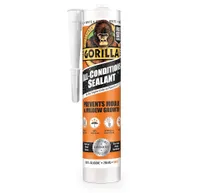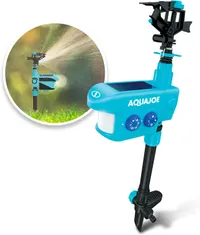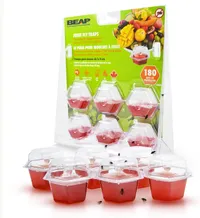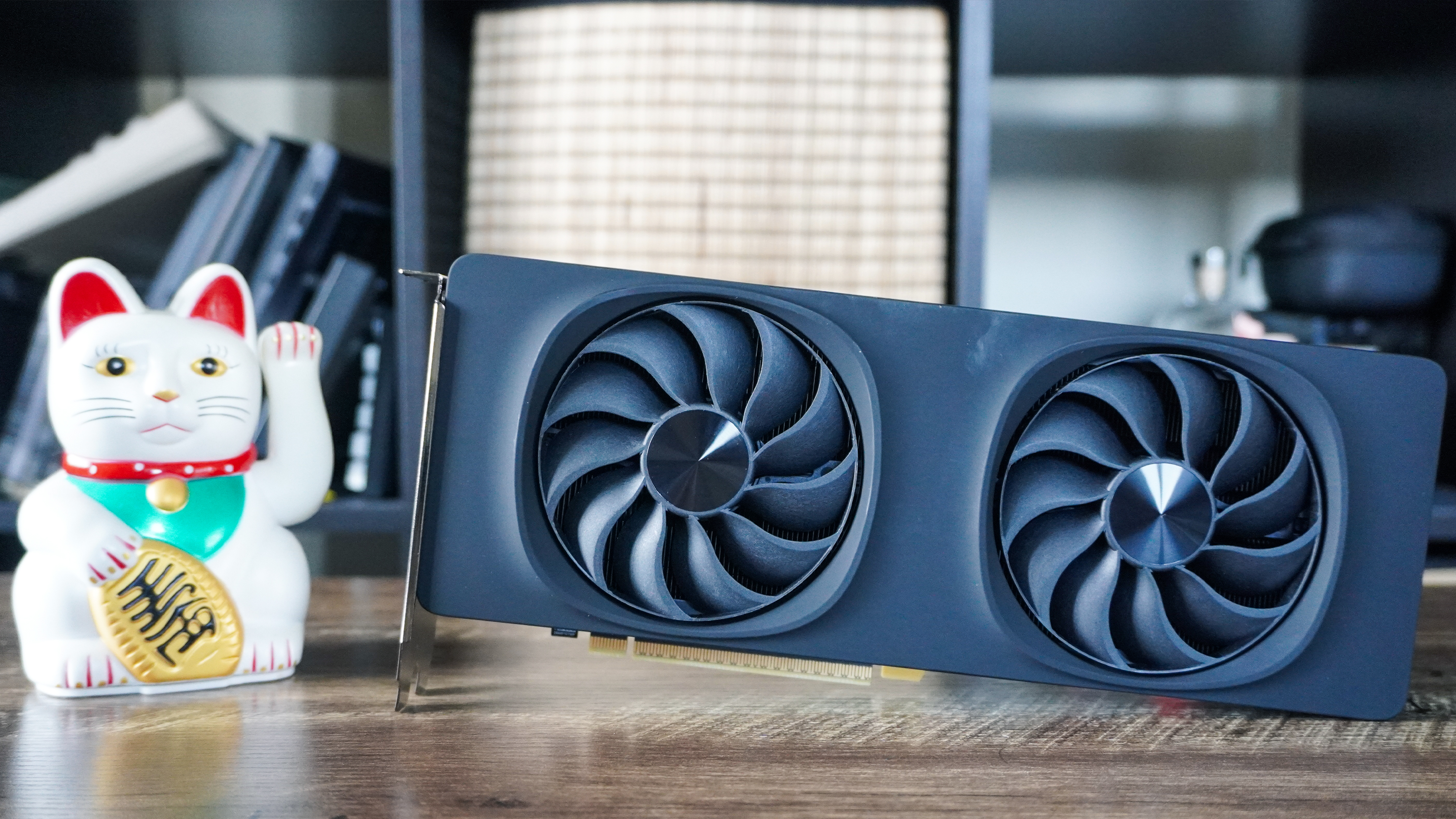3 pests that your Halloween pumpkins can attract to your home
Experts warn of these pests that pumpkins can bring to your home this Halloween

As Halloween approaches, many will be getting into the festive spirit by leaving out customary pumpkins on their front porches, doorsteps or backyards. This is especially the case if you have young children who want to get creative, making a Jack-o-Lantern or even a no-carve pumpkin for the spooky season.
But while these might seem like harmless, decorative features to spruce up your porch, you might be unknowingly inviting unwanted visitors to your home. According to pest control experts, leaving out carved pumpkins can attract certain pests to your home. This is made even worse after they’ve been out for a long time, and start to decompose.
Just like any other organic matter that attracts pests, you’ll need to take extra precautions. After all, you don’t want to be dealing with a potential infestation. ‘’Pumpkin carving is extremely popular, it’s a fun activity to do with friends and family,” says Joshua Houston, Pest Infestation Expert at Household Quotes.
“But just be careful that you’re not letting any unwelcome visitors into your home. Be safe by always inspecting the external habitation that you’re planning to bring inside. There are other causes of pest infestations during the colder months, make sure to take them seriously and be prepared. Pest infestations can cost a lot of money to resolve, so acting now to protect your property is a wise move.’’
So before you decorate your home for fright season, beware of these unwanted pests that your Halloween pumpkins can attract to your home.
1. Rodents
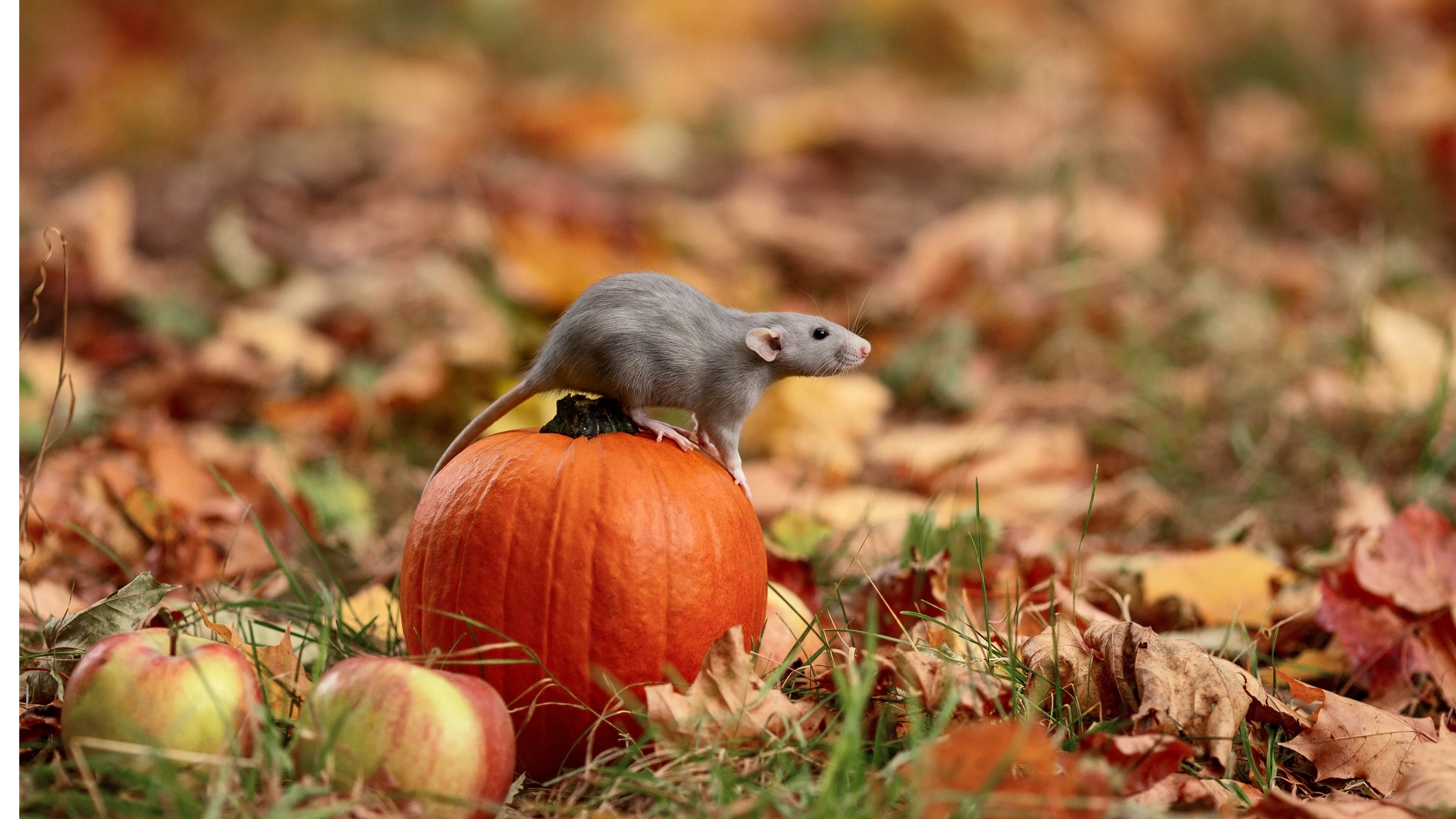
It’s always a concern when you spot rodents in or around your property, and it’s important to eliminate the things that attract rats and mice. Unfortunately, rodents will enjoy feasting on tasty pumpkins, especially if carved and open. “Pumpkin carving is a Halloween tradition that could be causing more harm than good,” states Ryan Fitzgerald, owner of Raleigh Realty. “The smell of slowly-rotting pumpkins is something that will attract an array of animals to your front porch or backyard. Rats and mice will be enticed the longer the carved veg is left to decompose on your doorstep.”
Experts advise to inspect your property for any holes, gaps or any other entry points where rodents may enter your home. Then, block points of entry by sealing any small holes in your foundation, siding, and doorway with caulk or weather-stripping such as Foam Insulation Tape, Weather Stripping Door Seal Strip ($13, Amazon), as a barrier.
Get instant access to breaking news, the hottest reviews, great deals and helpful tips.
In addition, you can deter them with essential oil such as eucalyptus or peppermint oil. Simply dilute a few drops of essential oil in a bottle of water, before spraying around the pumpkins. The strong smells will (hopefully!) deter rodents from coming anywhere near.
This waterproof, silicone sealant is great for gaps and cracks. Easy to use, this can be used around the home to seal out water, air and moisture. Plus, it's mold and mildew resistant.
2. Squirrels
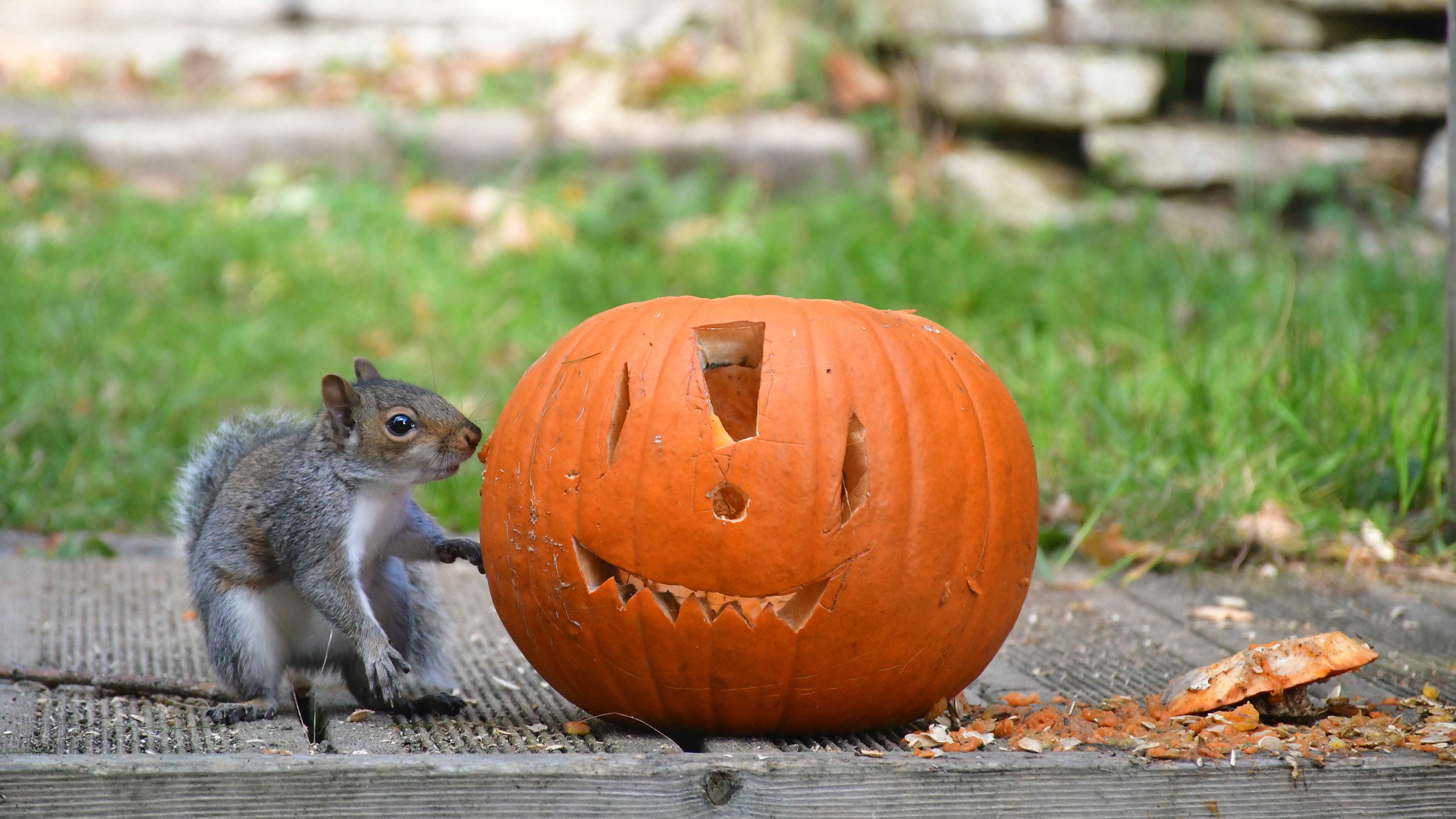
These bushy-tailed creatures may look innocent, but squirrels are known to be extremely destructive pests — causing havoc in your backyard. “Squirrels in particular are scavenging creatures, so will be drawn to the plump flesh, tough rind and delicious seeds of the pumpkins.” agrees Fitzgerald.
Before you place your decorations, you’ll need to know how to squirrel-proof your Halloween pumpkins. Similar to other pests, squirrels dislike strong scents. You could deter them with natural repellents such as peppermint essential oils or even leave a border of coffee grounds around your pumpkins or pumpkin display. Just remember to refresh these every few days for effectiveness.
Another clever trick is to position a motion activated water sprinkler around your pumpkin display. So once an unwanted, furry visitor approaches, the sprinkler will suddenly give them a harmless but startling shower. What’s more, avoid placing your pumpkins directly on the ground as pests such as squirrels will have easier access to it.
This motion-activated sprinkler has a 120° field of view and can span three area ranges depending on the size of pest. Reviewers say it's easy to set up and a good option.
3. Fruit Flies
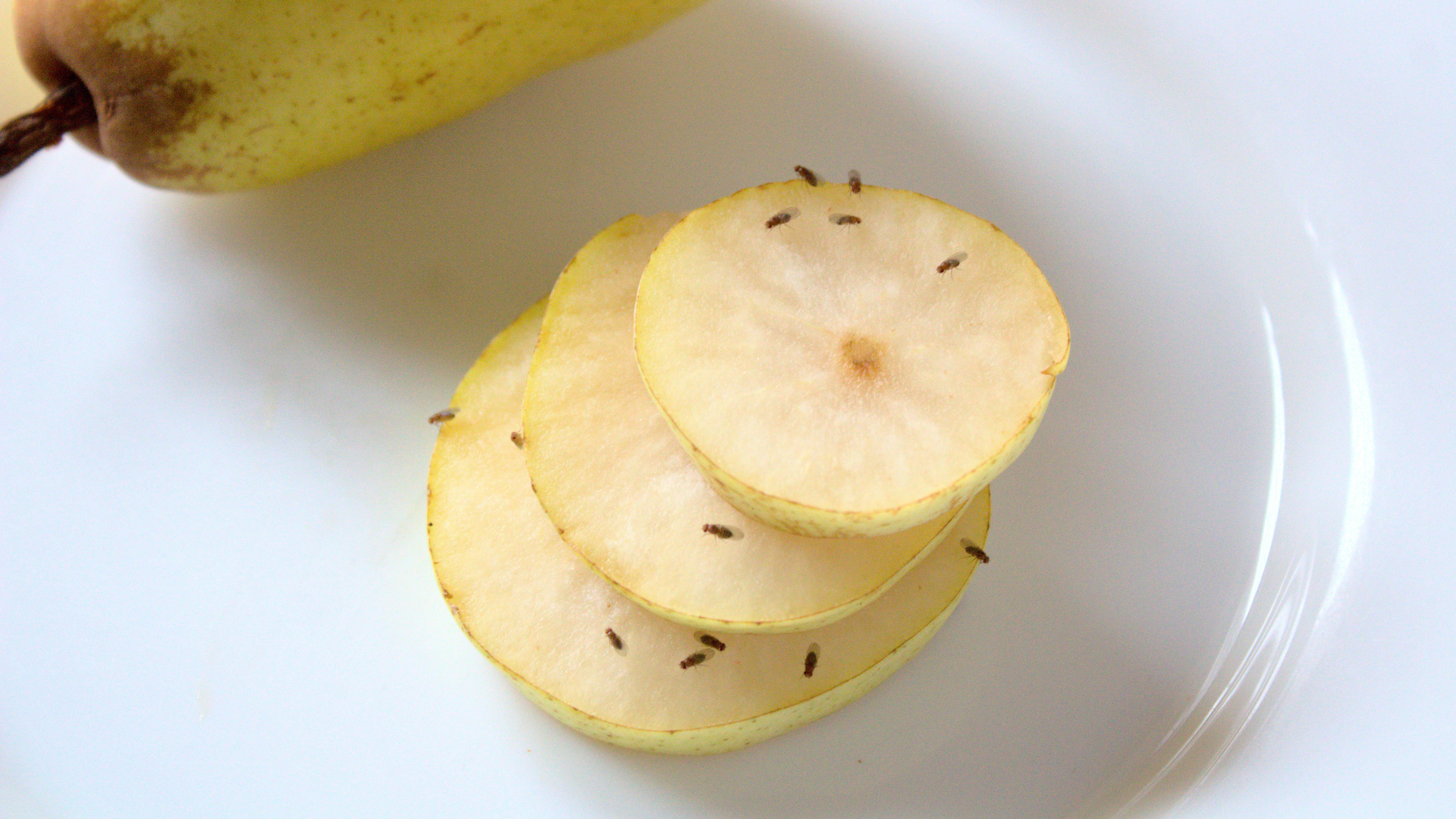
Whether they’re hovering around in your kitchen or outdoors, learning how to get rid of fruit flies can be an ongoing problem. And these tiny insects will certainly enjoy feasting on a decomposing pumpkin left out. Not only will they swarm and cover the surrounding area, but will lay eggs in the pumpkin — causing pests to multiply.
Plus, if your pumpkins are near a door or entrance to your home, these pests will likely fly inside at any given opportunity. There are several natural methods to get rid of fruit flies, such as an apple cider vinegar trap, Simply fill a small bowl with a cup of apple cider vinegar, cover it with plastic wrap and seal it using an elastic band. Then, poke small holes in the top (with a toothpick), and leave it out near the pumpkins. The strong smell should attract the fruit flies! Additionally, fruit flies are attracted to the smell of fermenting beer and wine. So simply pour a little beer or wine into a saucer and place next to your pumpkins. The smell lures them in, and will trap them. Failing that, you can always invest in a fruit fly trap that is available in hardware stores or online.
More from Tom's Guide
- Here’s how to have a sustainable Halloween
- Or 9 best fall decor ideas for a cozy home
- Plus, here's how to make a no-carve pumpkin

As the Homes Content Editor, Cynthia Lawrence covers all things homes, interior decorating, and garden-related. She has a wealth of editorial experience testing the latest, ‘must-have’ home appliances, writing buying guides and the handy ‘how to’ features.
Her work has been published in various titles including, T3, Top Ten Reviews, Ideal Home, Real Homes, Livingetc. and House Beautiful, amongst many.
With a rather unhealthy obsession for all things homes and interiors, she also has an interior design blog for style inspiration and savvy storage solutions (get rid of that clutter!). When she’s not testing cool products, she’ll be searching online for more decor ideas to spruce up her family home or looking for a great bargain!
 Club Benefits
Club Benefits





